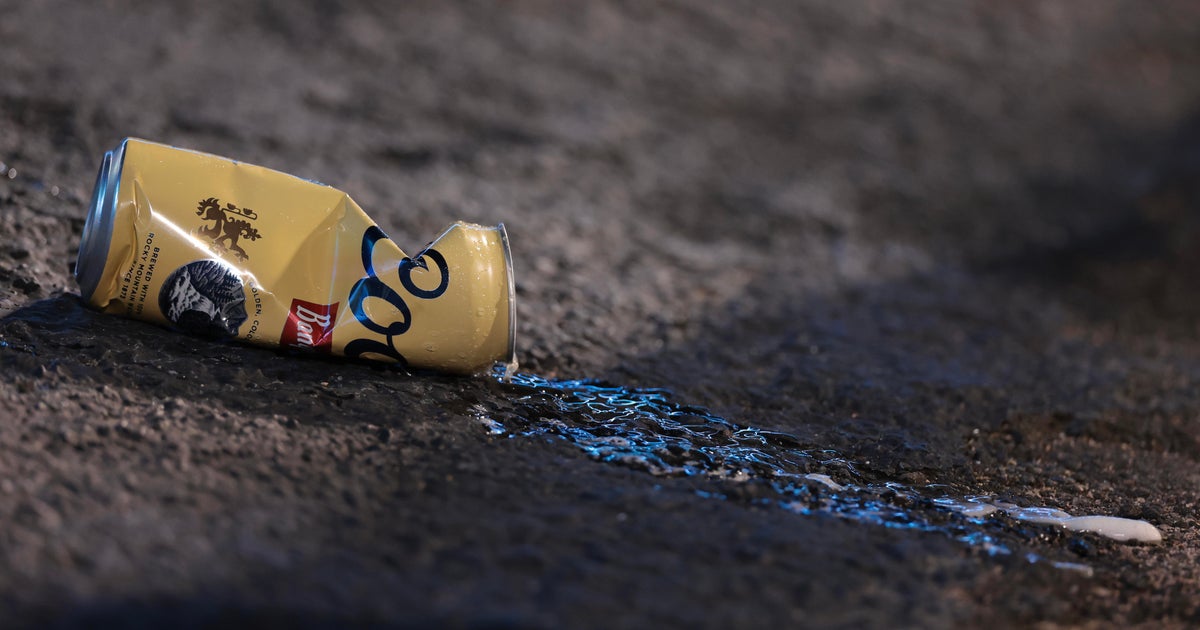Tap Talk: Modist Brewing Opens In Minneapolis' North Loop
Over the last five years, the craft brewery movement has grown exponentially in Minnesota. The Associated Press says licensing records show two-thirds of Minnesota breweries have opened just since 2010. So, we decided to help you – and your livers – keep up with the taproom trend by stopping by some of these Twin Cities brewhouses. This time, we're visiting one of Minneapolis' newest breweries – Modist Brewing Company.
Beer is not a complicated beverage.
In its most basic form it consists of just a few ingredients – water, grain, hops and yeast.
While craft brewers have been experimenting with different adjuncts, the basic recipe always remains the same. A little bit of each ingredient is required to create the brew.
So, it makes sense then that a little bit of several Minnesota breweries went in to creating the newest brewery in Minneapolis.
Modist Brewing Company opened its doors on Friday, April 15.
Its team of four met six years ago and during the planning process had ties to Harriet Brewing Company, Lucid Brewing and Dangerous Man Brewing Company.
Eric Paredes and Keigan Knee were the catalysts to Modist becoming a reality.
The two met when they both decided to volunteer at Harriet Brewing Company, the latest and greatest craft brewery at that time.
They both began by cleaning growlers and washing dishes, and within a year were the most senior volunteers. Soon, they became employees. As there were no taprooms as of yet, the Surly Bill had not been introduced, they spent their time pouring 2 oz. tasting samples to customers.
"As we were doing that over the course of eight hours we thought, 'One of these days we should do something like this.' So, that's where the dream started," Paredes said.
Knee quickly became very invested in the industry. He began homebrewing with his roommates, Kale Anderson and John Donnelly, and within a short amount of time quit his day job and became an assistant to the assistant brewer at Harriet Brewing. He eventually became the head brewer at Dangerous Man.
Anderson and Donnelly followed suit and quit their jobs as well. The two of them went to Lucid to work on packaging and engineering.
Meanwhile, Paredes stayed in corporate America until one day in 2010.
"There was a point in 2010 where I was sick of corporate America and I just quit my job. So I called Keigan and said 'You'll never believe what I just did.' And he said, 'Well, if ever there was a time for us to consider doing this thing, it should be now,'" Paredes said. "So, I literally drove over to these guys' house and said, 'Alright! Let's start putting some plans together.'"
After years planning on nights and weekends, the team all officially became Modist employees in August 2015.
Now, the bits and pieces of their pasts have come together to create Modist Brewing Company.
Follow them: on Twitter at @ModistBrewing, on Facebook at Modist Brewing Company, or visit their website online.
Owners: Kale Anderson, John Donnelly, Keigan Knee and Eric Paredes
Brewer: Keigan Knee
Location: 505 N 3rd Street
Hours: Tuesday – Thursday: 4 to 10 p.m., Friday 3 p.m. to 12 a.m. Saturday: 12p.m. – 12 a.m. and Sunday 12 – 8 p.m.
Contact: 612-454-0258
View more photos from Modist Brewing Company here.
So, let's start off with a simple question. Where did the name "Modist" come from?
Paredes: The word "Modist" comes from the word modify. The first thing that we started when we set out to create this brewery was our philosophy; which is, when it comes to beer we want to brew a beer with the end experience in mind first. We want to work our way backwards as opposed to starting with a recipe and working our way from there. We're attempting to put our own unique fingerprint on beer and at the same time we want to push where beer is a little bit.
I think that is a very interesting approach! It's almost a deconstructed look at beer, if you will. Tell me, how did you land on the North Loop as a location?
Paredes: Well, we started looking at a whole bunch of different places. Ideally, the thing we were looking for from the get-go was a large facility. We have a lot of friends in the industry and the first thing they told us was, "Make sure you get a big space because the first thing you'll run out of is space!" So we were looking for a large facility. We knew Northeast at that time was becoming the Capital of Craft, so we didn't just want to be another craft brewery in Northeast. We have a very unique point of view so for us it was important to find a place that would let us be our own thing without encroaching on anyone else. At the time it was only Fulton out here, so we figured this would be a fun area. It was really serendipitous actually, we started looking in this area and we weren't finding anything. Then one day Keigan drove by this area and saw a "For Lease" sign that had just gone up the day before or something. He saw it and we called right away. The landlords were interested in doing more of a long term lease. So it worked out beautifully.
That is very serendipitous! Sounds like it was a perfect fit. So, Modist is the first brewery in the Midwest to have what's called a mash filter. How did you decide on that type of equipment.
Paredes: The philosophy guided us to developing the equipment and custom designing the equipment. Knowing that we wanted to brew beers that would be very different and that weren't going to fall into a style, [we knew a] traditional brewing system probably wasn't for us. We [figured we] might have to buy a traditional brewing system and tinker with it, or see what else is on the marketplace that's ready for us to use that will allow us to do different things. In doing our research we found out about this company called, Muera. [Muera is a Belgian company that has] been building filters of some sort for the beverage industry for a very, very long time. They manufactured the mash filter. As it pertains to beer, though, they've only been building these pieces of equipment at the scale for craft breweries, like us, in recent years. So, it was also kind of serendipitous at the same time we were exploring something unique that these things were available in this scale.
How does having a mash filter fit with Modist's philosophy?
*Listen to Paredes discuss the Modist mash filter.
Wow! That sounds like a very unique approach to brewing. It is definitely something that sets you apart. What does it do to the flavor of the beer? For the brewery?
Paredes: It makes us a lot more efficient. We use less grain and less water because our water goes longer. We're actually able to save on electricity and labor, as a matter of fact. A brew day that normally lasts eight hours only takes us about four or five. In terms of flavors, the filter is actually very, very gentle so it doesn't extract any off flavors or anything. For all intents and purposes it handles a grain as well as a traditional system would, but what it allows us to do, because we've ground it into a flour, we can use a variety of ingredients that a traditional system couldn't use. For example, one of our beers on tap is Toats which is 60 percent oats. Most traditional beers that have oats in them are 10, maybe at most 15, percent oats. Oats, as you may have experienced yourself with oatmeal, are gummy. If you let oatmeal sit or you cook it too long, it's a gummy paste. That's exactly what happens in a traditional system if you go over 15 percent. For us, because we have a mash filter, we can make a 100 percent oat beer. I can do the same with rye or any of the ingredients. It works like a French coffee press versus a traditional coffee filter.
So, what are some of the flavors you could create with the mash filter that you couldn't otherwise?
Paredes: I'm really looking forward to the day where we amp up some of the percentages of these other grains that haven't necessarily had their day in beer yet. There's a lot of rye beers out there with low percentages. Wasteland is 60 percent rye. We can also make 100 percent wheat beer, which there isn't one out there necessarily that I know of. But then, pushing past that, we can start using spices and full fruit. We would certainly be able to use different amounts of fruit and different types of fruit than we have before.
Sounds like there is a lot of possibility with the mash filter! Moving on to beer flavors then, tell me about the beers you currently have on tap.
*Listen to Paredes talk about the brews on tap at Modist
I have to say, I'm really excited for the salted caramel lager! So far you've only had previews, but is there one beer has been the favorite?
Paredes: I was kind of crunching the numbers and the most popular right now has been pHresh. I think it's just a very, very approachable, simple beer, but it's also interesting in a sense because it's got this tartness to it. A lot of people are characterizing it as being very citrusy and refreshing. I think as people are looking forward to the warmer temperatures it will be a good seller.
Clean, citrus flavors are definitely a great introduction to the spring season. I can see why that is a popular choice. With the grand opening behind you, what about this process has most excited you?
Paredes: We unceremoniously ended construction and moved into the opening process very quickly but for me, and I think I speak for most of us, it was actually the moment when we created this space. When we were actually able to see people sitting across from each other at a table, having a conversation and drinking our beer. That moment facilitated by the space, facilitated by everything we've created here, the environment and the beer, was sort of the crowning moment for us. In terms of what I'm excited for in the future is just to create beers that others haven't created yet. It isn't about being gimmicky or doing something for the sake of being different. It's just doing something because we think beer can be a little more interesting.
I think with the influx of breweries in the Twin Cities people are really looking for a space that does something different and unique. Tell me, what do you think is the biggest challenged facing Modist?
Paredes: I think for now its just getting to the point where we have honed in our beers to exactly where we want them to be, and just making sure we continue to stay true to our philosophy of being creative and experimenting. We don't have any styles, and that is something that scares us a little bit. People come in and say, "I want an IPA," but we wont have an IPA. We won't even use the words IPA. We've instructed our staff not to use the words IPA. We want to describe our beers using the descriptors – the aroma, the flavors, the mouth feel. So that might be a challenge for us because people are just now coming into the beer scene so it's our job to educate them. We're hoping that people will be patient and that people will be open to experimenting because our beers will be different.
Wow! I think not having an IPA on tap will be a bold move, but I think using descriptors is a great way to educate people on beer. So, I know that you've mentioned wanting to do more beer and food pairings. Tell me, what is your approach for beer pairing dinners?
Paredes: We're hoping to do more than the traditional, "Here's my finished product, Chef. Can you please match it with your food or whatever works best?" The system we have and the fact that we can experiment and create some pretty unique beers can actually allow us to take the next step even further. [So we can] sit down with a chef and say, "If you could brew the perfect beer to pair with your food, what would that beer look like, taste like, feel like?" and invite those chefs to come and be a part of that brewing process. To almost create a beer that would work perfectly for their food as opposed to just giving them something that we have in our portfolio. [We want to take] that extra step and be very mindful with how we interact with food. Even our food truck, rather than having them be a separate entity that is parked next to us, we want to invite them in. We want them to cook with our beer, we want our patrons to understand if they order this beer they should have the hamburger as opposed to the salad. [It's] high-time that beer sort of share the table with wine when it comes to food as well. I just think beer pairs beautifully with food and I don't think that is happening enough yet. So we've made it a mission to do that.
I think there is definitely space for more beer pairings. There is a lot of room to explore opportunities. So, what is your hope for the brewing industry in the next few years?
Paredes: I would love to see a lot more education. It's something we're actually taking very seriously. People are being turned on to beer now more than ever before and I think as brewers it is our responsibility to educate people.
I think with your approach to using descriptors, combined with the beer-pairings is definitely a step in the right direction when it comes to education. So, to finish off the interview, how would you describe Modist in one word?
Paredes: Modified.







